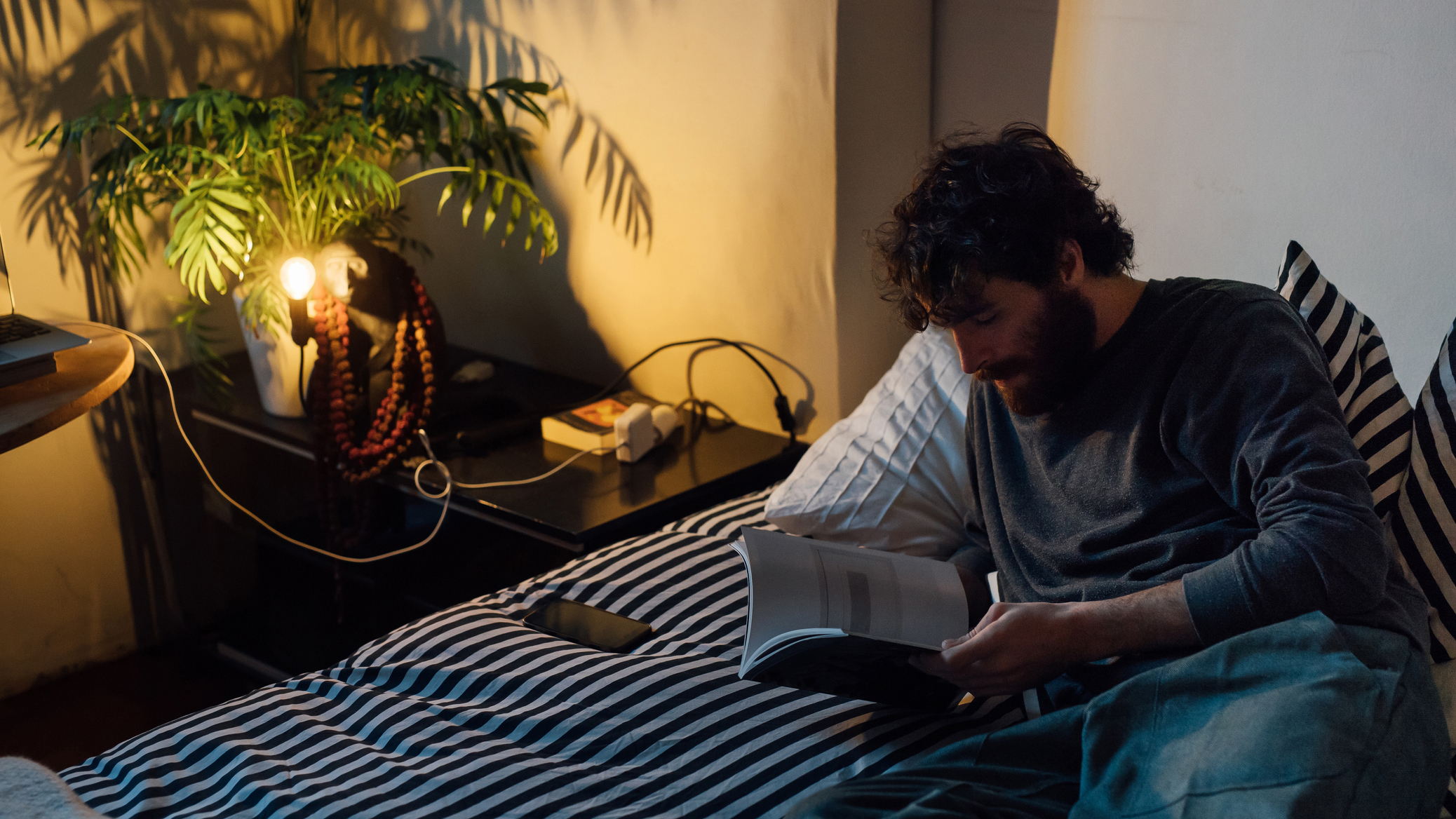Why everyone should read a book before bed to get better sleep
The science behind snuggling up with a good book to improve your bedrest and get better sleep


Start your week with achievable workout ideas, health tips and wellbeing advice in your inbox.
You are now subscribed
Your newsletter sign-up was successful
There are lots of things we can do on a day-to-day basis to improve our sleep. Getting one of the best mattress toppers, for example, or piping lavender scents through one of our best diffuser entries to lull us into sleep. Turning off our devices and reading a before bed are two more habits which promote great sleep, as it turn out reading – even for a few minutes – is an excellent bedtime habit.
Why? Whether fiction or non-fiction is your particular poison, reading is good for you. It distracts you from the problems of your day, just like your phone – but unlike your phone, it doesn't artificially tinker with your hormones.
The blue light from phones and computers has been proven to suppress the production of melatonin, your body's sleep hormone, according to studies reviewed by Harvard University. It also artificially stimulates the production of dopamine, the reward chemical in your brain. This chemical is addictive, keeping you scrolling through your phone longer – which of course, exposes you to more blue light, denying you sleep.
Reading has none of these problems, and loads of stress-reducing benefits. A study published by sleep experts Dreams, by cognitive neuropsychologist Dr David Lewis, found that reading before bed could reduce stress levels by 68 per cent, ensuring a better night's sleep. It's thought the lack of screen time, coupled by the distraction of thumbing through a good book, is far more soothing than consuming content through the TV, computer or your phone.

It can even help you lose weight, in a roundabout way. When you're not being stimulated by blue light, and you're being distracted from workday worries, your cortisol level begins to drop.
Cortisol is our body's stress hormone: in caveman times, it would increase in times of hardship, sharpening our survival instincts and encouraging our body to cling onto fat. Of course, nowadays we're less stressed about being eaten and significantly more stressed about less life-threatening problems, so we have far more cortisol pumping round our bodies than we need to. Reading can reduce the production of this stress hormone.
The best Fitbit and best fitness tracker entries can monitor your quality of sleep, so you can adjust your habits to fine-tune your bedrest to optimum levels. If you're still struggling to nod off, consider cozying up with your book and a cup of chamomile tea.
Start your week with achievable workout ideas, health tips and wellbeing advice in your inbox.
Chamomile is widely regarded as a mild tranquillizer and sleep-inducer, with some compounds in the tea thought to have a very mild sedative effect on the brain. Chamomile tea has long been used to soothe, combined with other herbs and roots like ashwagandha to reduce symptoms of anxiety.
Matt Evans is an experienced health and fitness journalist and is currently Fitness and Wellbeing Editor at TechRadar, covering all things exercise and nutrition on Fit&Well's tech-focused sister site. Matt originally discovered exercise through martial arts: he holds a black belt in Karate and remains a keen runner, gym-goer, and infrequent yogi. His top fitness tip? Stretch.
